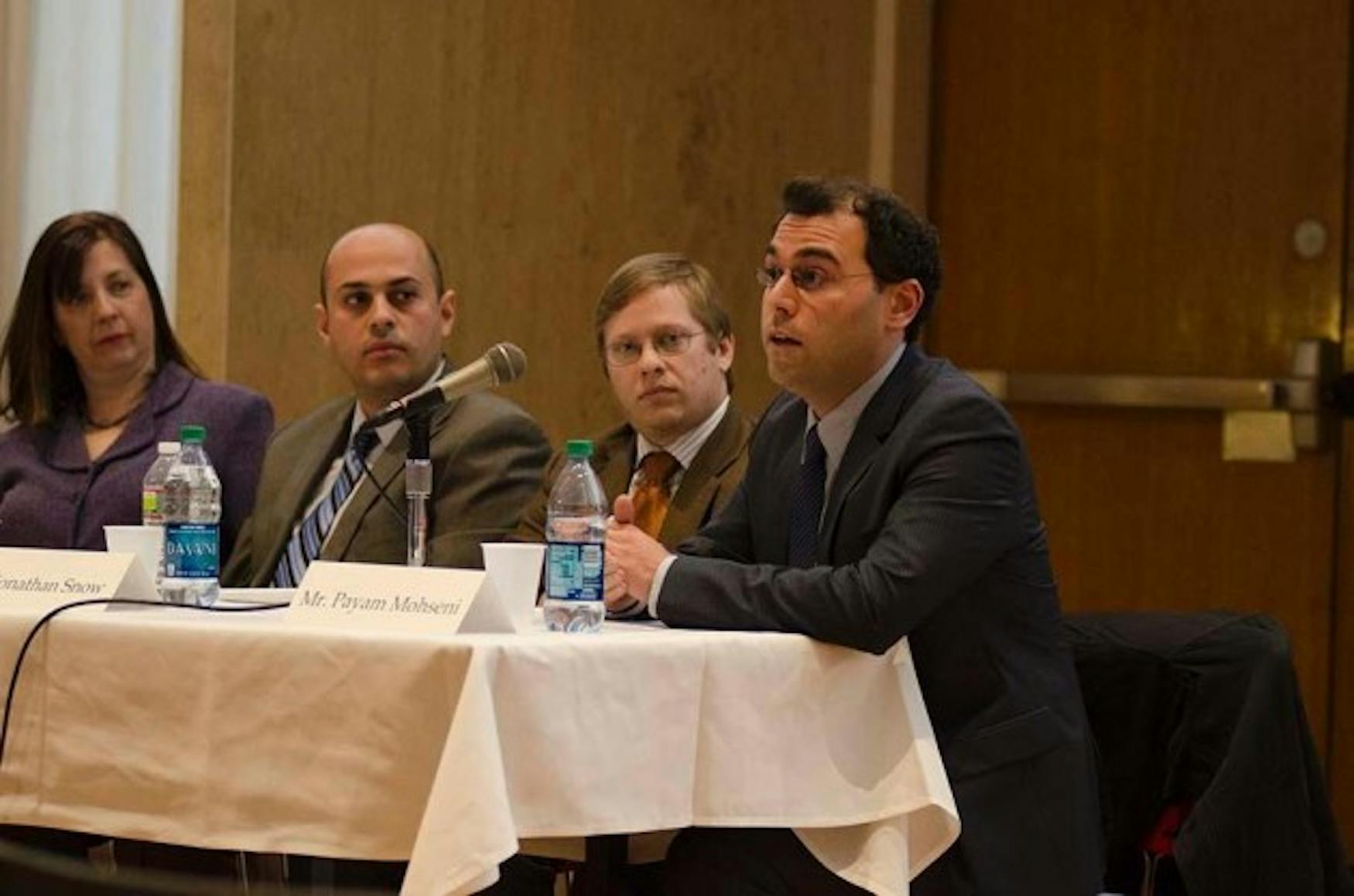Experts discuss Arab Spring, state of Islam
Correction appended
Four panelists convened yesterday in the Rapaporte Treasure Hall for an event titled "The New Middle East: Arab Spring or Islamic Winter?" to discuss the outcomes and futures of the 2011 Middle Eastern uprisings.
Presenting as panelists were Prof. Eva Bellin (POL); Payam Mohseni, a junior research fellow at the Crown Center for Middle East Studies, who represented Iran; and Ph.D. candidates Karim Elkady, who represented Egypt; and Jonathan Snow, representing Israel. Prof. Naghmeh Sohrabi (HIST) served as moderator.
Sohrabi began by asking whether the events of the Arab Spring can be characterized as a revolution or as a change in government and to what extent the classification matters.
Bellin noted that social scientists "get really irritated" when the uprisings are referred to as a revolution because they do not fit the established definition of a "political mobilization that leads to a dual outcome," meaning that there is change in both the political system and the distribution of power.
Many countries did not experience a change in government, while those that did-namely Tunisia, Libya and Egypt-did not experience a change in the distribution of power and do not display all of the institutional markers of democracy, including free and fair elections and universal suffrage, she continued.
With respect to Egypt, Elkady asserted that it is too soon to determine whether the country is experiencing either a revolution or a regime change as the country is in the "center of transition."
So far, he said, he has observed no structural changes in how the state is run at an institutional level, no clear group representing the Egyptian revolution and no comprehensive plan for the country's future.
"The people ... want social justice and they want freedom," he added, but that the people don't know how to reach those objectives.
Snow said that Israel is taking a "wait-and-see approach" in determining whether to intervene, which is important for the country's security. The primary concern is "looking at the effect on us from our neighbors," Snow continued.
Concerning Iran, Mohseni said that the country experienced many of the pressures and tensions of a mass social mobilization during its 2009 Green Movement protests. Iran is pleased with the recent uprisings, which it terms an Islamic Awakening, because Iranians believe that they have contributed to the gradual Islamization of the Arab region, want Islamic norms to come to the government level and hope to open up ties with Egypt, he said.
In response to a question from Sohrabi about foreign parties arming Syrian insurgents, Bellin said that, while it is difficult not to identify with the struggles of the people, providing weapons is not a viable way to "achieve peace."
"Just because you're moved to do something does not necessarily mean you have to power to do the right thing," she said. The best course of action at the moment is to provide humanitarian aid to refugees, she said.
In response to an audience question from Brandeis Israel Public Affairs Committee Co-president Alex Thomson '15 about Iranian President Mahmoud Ahmandinejad's trip to Egypt last month, Mohseni said that, as a result of the visit, Iran hopes to gain a strong relationship with the country as a key ally against Israel and as a trade partner.
In response to an audience question about U.S. intervention in the region, Bellin said that the country, exhausted from its time in Iraq and Afghanistan, would be most effective by "stay[ing] out and try[ing] to 'finagle' things from the outside."
In summation of the panel and the topic, Sohrabi said, "What we've learned today is 'wait and see' and 'it depends who you ask.'"
The event was sponsored by the Brandeis International Journal, BIPAC, the International and Global Studies Program, the Islamic and Middle Eastern Studies Program and the Politics Department.
Correction: The article originally misstated the title of Payam Mohseni. He is a junior research fellow at the Crown Center for Middle East Studies, not a Ph.D. candidate.



Please note All comments are eligible for publication in The Justice.